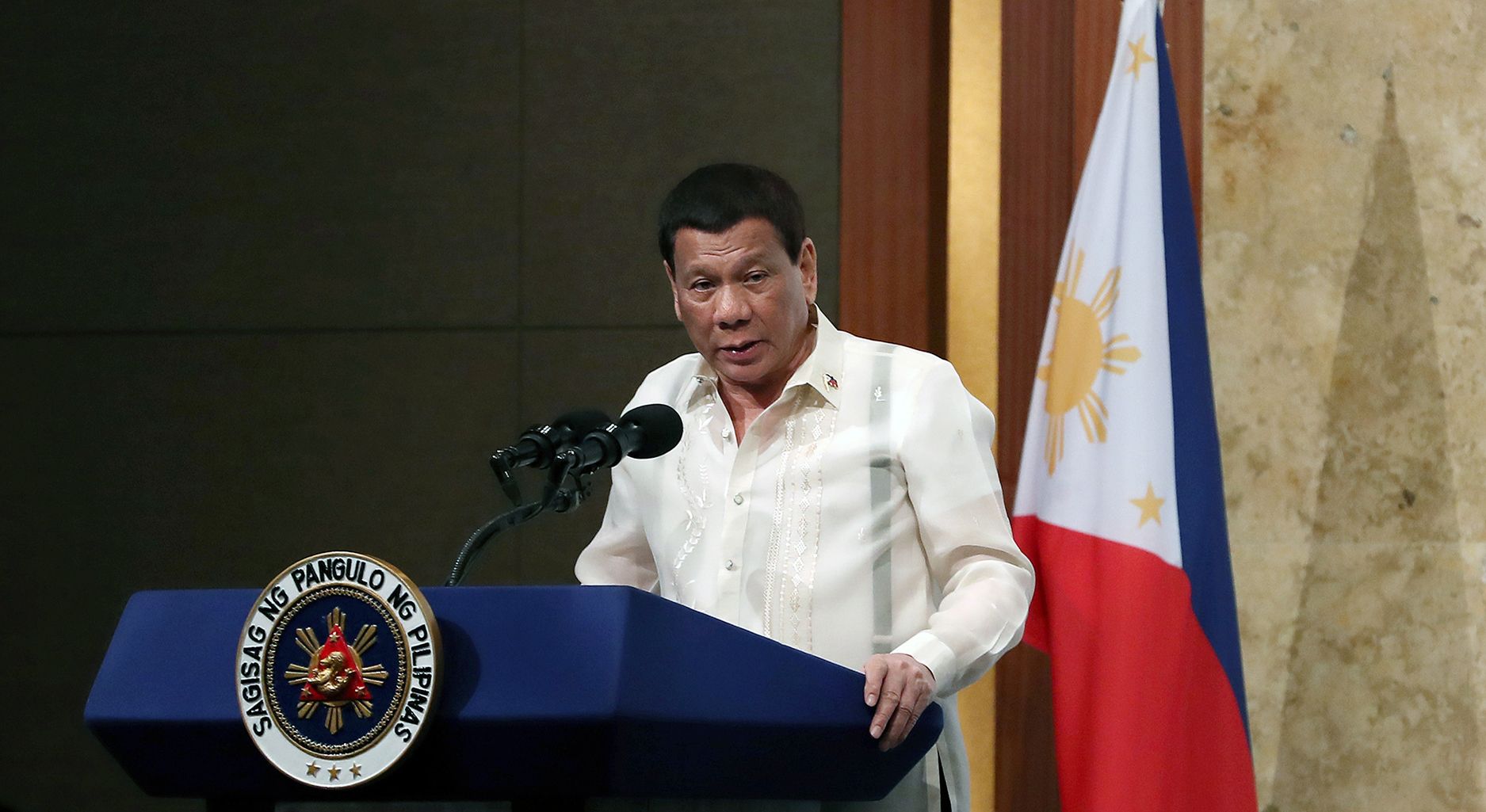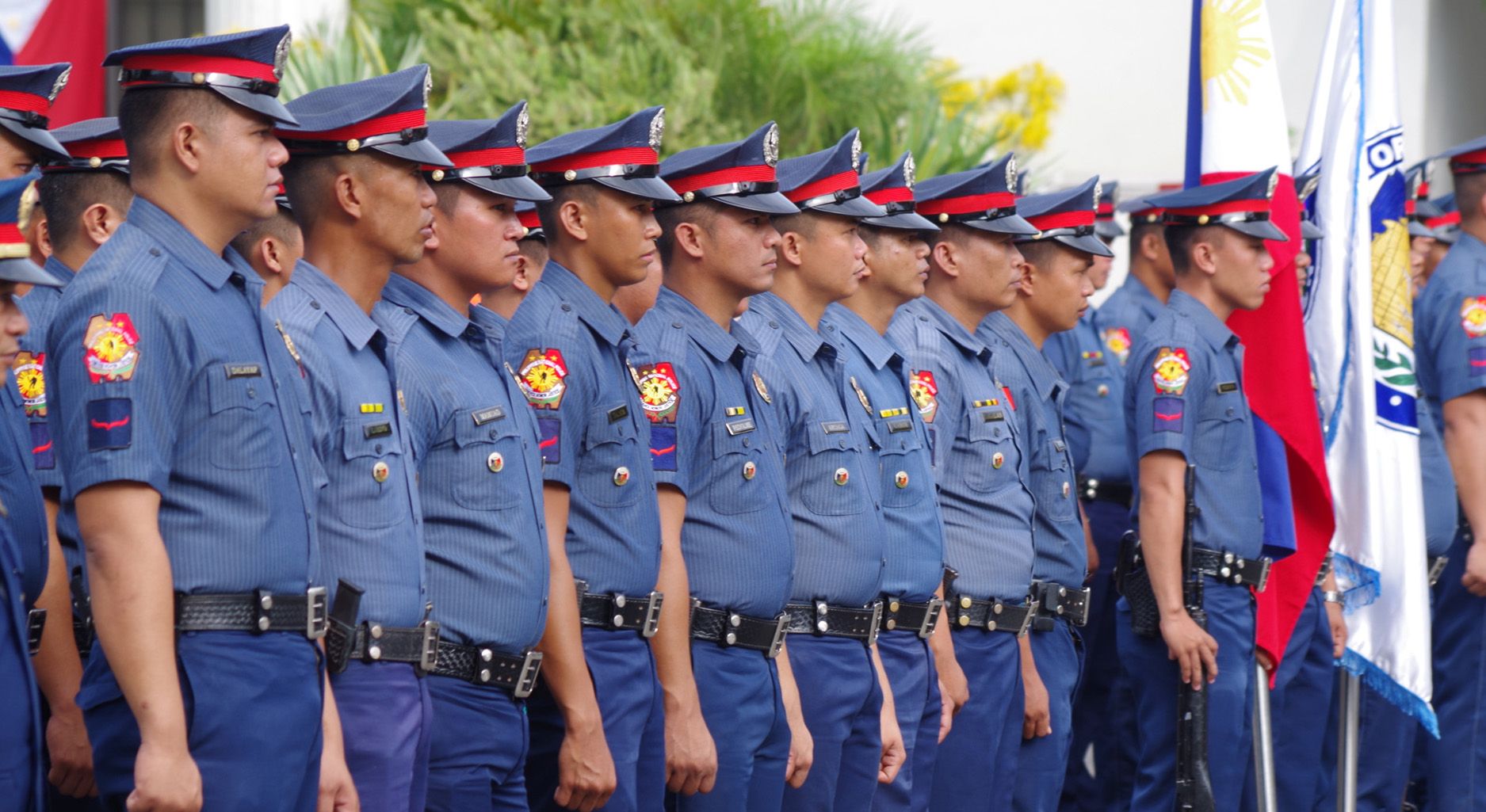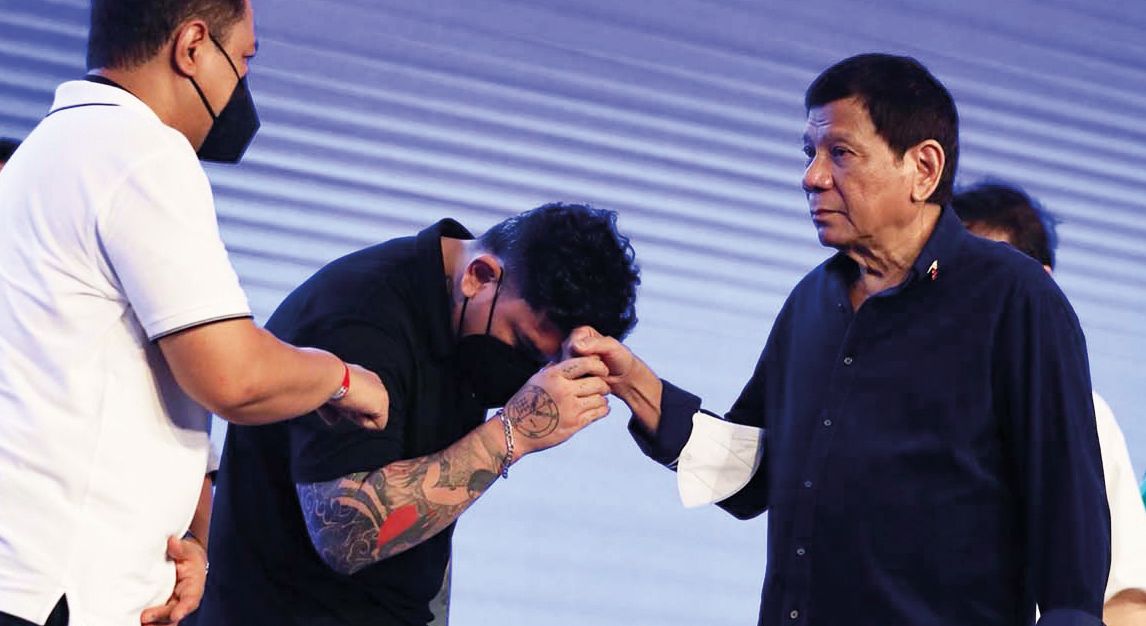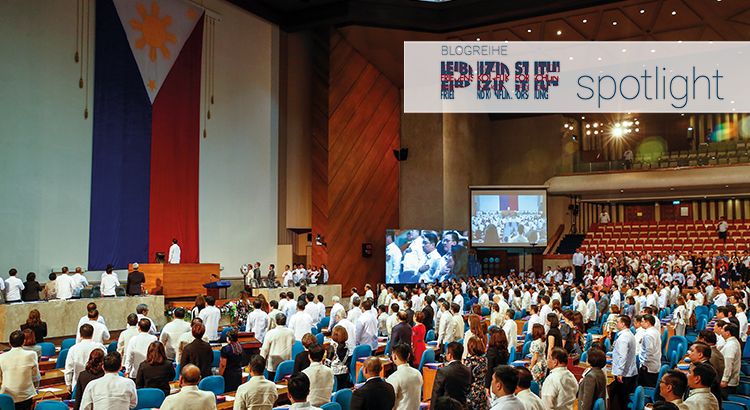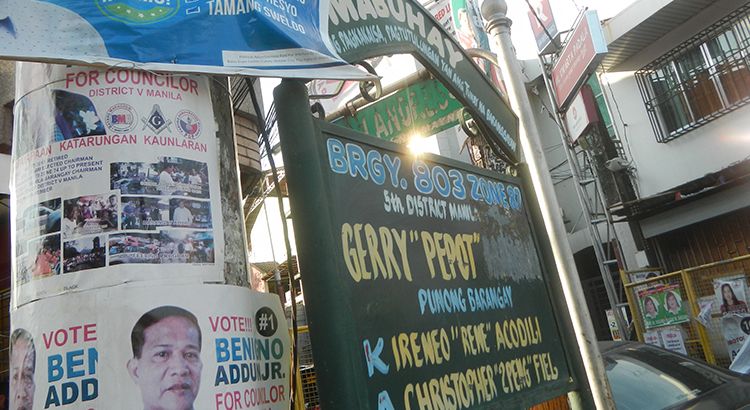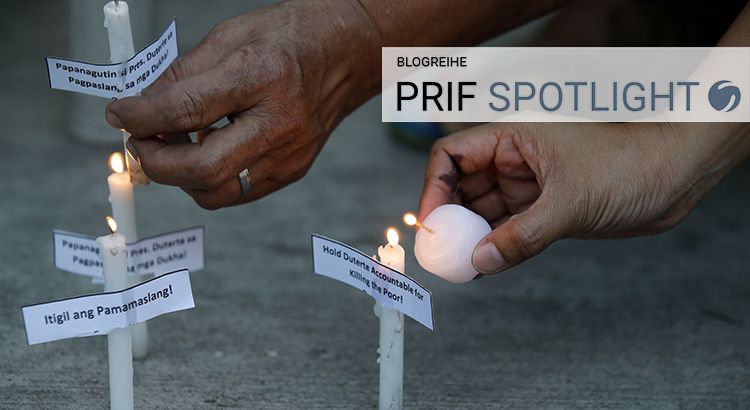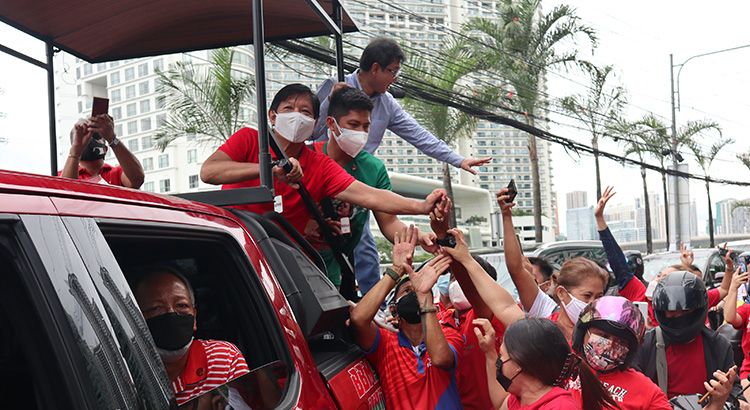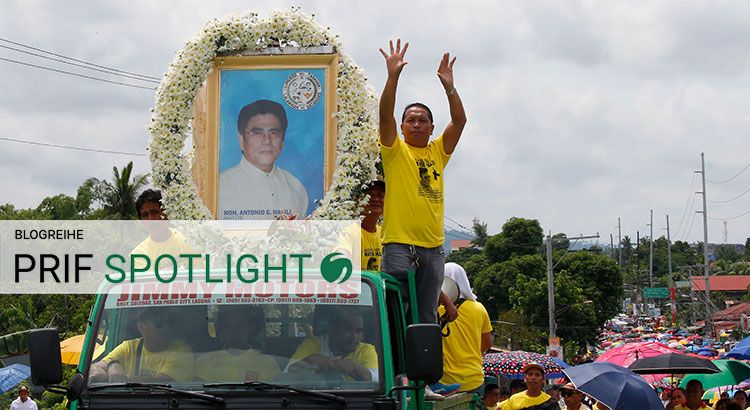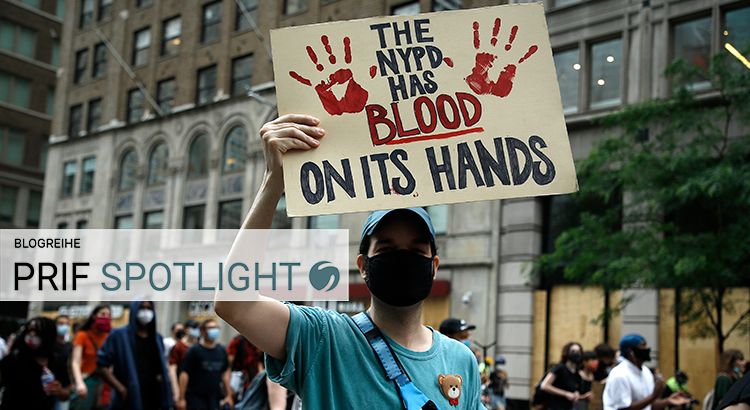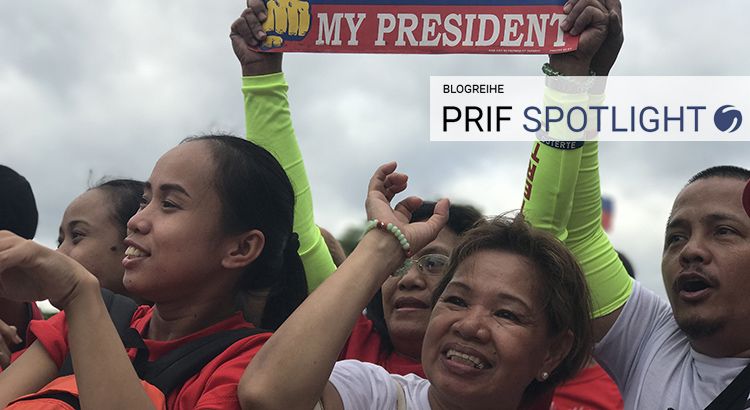Author: Peter Kreuzer
Dr. Peter Kreuzer ist Wissenschaftlicher Mitarbeiter und Projektleiter am PRIF. Sein Fokus liegt auf politischer Gewalt in den Philippinen und maritimen Konflikten im Südchinesischen Meer. // Dr Peter Kreuzer is a Senior Researcher at PRIF. He focuses on political violence in the Philippines and maritime conflicts in the South China Sea.
After years of efforts by the International Criminal Court (ICC), former President Rodrigo Duterte was finally arrested by the Philippine National Police and transferred to The Hague. What at first glance appears to be positive news, on the other hand, demonstrates the lack of will and abject failure of Philippine politics and authorities to prosecute the former president on their own soil. While the arrest is a first step to accountability and justice, it is also a dramatic testimony to the continued existence of a political elite that has no interest in taking responsibility for the common good themselves.
The Philippine National Police: Finally Putting Limits to Police Use of Deadly Force?
On March 22, 2024, Davao City mayor Sebastian Duterte declared that “Davao City is at war against drugs.” In the following days, seven suspects were killed in police anti-drug operations. However, shortly thereafter the mayor's call to arms was met with resistance from the police. Several police officers were relieved of their duties and the PNP-chief declared that “there is no need for a drug war.” Is the Philippine National Police finally taking on its dismal record on the use of deadly force?
Localization of Fatal Police Violence: Evidence from the Philippines
When discussing the use of deadly force in crime control, various factors are commonly considered, ranging from crime levels to organizational culture. Often overlooked is the influence of politics, especially local politics, on police use of deadly force, even though this may provide an important explanation for spatial and temporal variation within states. Using the Philippines as a case study, I contend that local political executives can strongly impact local police use of force levels.
Failing in Control. Legislative weakness in the face of a strongman president in the Philippines
When Rodrigo Duterte assumed the presidency of the Philippines in 2016, he pushed a campaign against illegal drugs that resulted in thousands of suspects being killed by law enforcers. Parliament appeared entirely ineffective in opposing the extensive human rights abuses during the Presidents anti-drug campaign. This Spotlight examines the wider working logic of Philippine democracy that makes Philippine parliament into a subservient accomplice of any determined administration of the day, even if this means going along with severe human rights violations.
Violence in Political Competition in the Philippines: The 2023 Barangay Elections in Perspective
In the Philippines a large number of politicians and candidates are killed before, after and between elections. Against the backdrop of the constants and changes of this violence, I outline why a way out is not in sight and why several dozen dead incumbents and candidates can again be expected in the coming late October elections for Barangay (village municipal ward) leadership position.
Impunity and Police Vigilantism – Is the highly excessive use of deadly force by the police in the Philippines now over?
Since June 30, Rodrigo Duterte’s presidency has been a thing of the past. This Spotlight asks why police forces in the Philippines were so willing to carry out the killing of drug personalities at Duterte’s behest in 2016 and what that may mean for the future. I argue that the inability to successfully bring suspects to justice and the resulting damage to the police’s self-image as a potent guardian of peace and order foster vigilante activities by police where a political and social environment exists that legitimizes such a strategy of violent crime control.
Elections in the Philippines: A Vote for Continuity?
In a few days, on May 9, 2022, the Philippines will elect the successor of outgoing President Duterte. The most likely candidate to become the new president of the Philippines is Ferdinand “Bongbong” Marcos Jr, the son of former dictator Ferdinand Marcos. The vice-presidency will most probably go the daughter of the current president, Sara Duterte-Carpio, whose father is responsible for the brutal drug war of recent years. How did this happen, and what does it say about the state of democracy in the Philippines?
Eine gewaltträchtige Ordnung. Gezielte Tötung als Mittel des „demokratischen“ Wettstreits in den Philippinen
Seit Langem ist in den Philippinen die gezielte Tötung politischer Gegner:innen ein fester Bestandteil des „demokratischen“ Wettstreits, dem pro Jahr zwischen 50 und 100 Politiker:innen und Kandidat:innen zum Opfer fallen. Trotz der Persistenz dieses Phänomens wird es jenseits der alltäglichen Berichterstattung in den philippinischen Medien weitestgehend ignoriert und stillschweigend als Teil der sozio-politischen Ordnung akzeptiert. Das Spotlight stellt diese national wie international kaum beachtete Form der Gewalt vor und verankert sie im Kontext eines umfassenderen Gewaltsyndroms.
Tödliche Polizeigewalt in den USA. Rassismus, Armut, Ungleichheit, Gewaltkriminalität
Ist tödliche Polizeigewalt in den USA rassistisch geprägt oder verdeckt die Brille des individuellen und institutionellen Rassismus andere wichtige Bedingungsfaktoren wie das hohe Maß gesellschaftlicher Gewalt und die für ein Land des wohlhabenden Nordens extrem hohe Armutsrate und ungleiche Verteilung des gesellschaftlichen Wohlstands? Ist Polizeigewalt mithin ein Spiegel gesellschaftlicher Verhältnisse? Dieses Spotlight zeigt, dass es keine einfachen Antworten gibt. Der gegenwärtige Fokus auf „race“ („Rasse“) führt aber nicht nur zu verzerrenden Feindbildern, sondern steht auch einer umfassenden Bearbeitung der Gewaltdynamiken entgegen.
Der autoritäre Patron, der liefert? – Weiterhin breite Unterstützung für Präsident Duterte in den Philippinen
Im Mai 2016 wurde mit Rodrigo Duterte ein Politiker zum Präsidenten der Philippinen gewählt, der versprochen hatte, Drogenkriminalität in wenigen Monaten auszurotten, vor allem durch das Töten von Dealern und Süchtigen. Deren Leichen würden „die Fische in der Bucht von Manila fett machen.“ Seit er diese Ankündigung umsetzt, sind seine Zustimmungswerte auf 80% gestiegen. Die liberale Mittelschicht unterstützt ihn, obgleich er Menschenrechte und liberale Freiheiten ignoriert, und die Armen unterstützen ihn, obgleich die mörderische Anti-Drogen-Kampagne fast ausschließlich Arme ins Visier nimmt. Warum ist das so?
